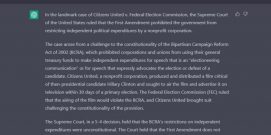The Insights and Fancies of a Billionaire Entrepreneur
Peter Thiel’s new book, Zero to One, is ostensibly a self-help book for those who want to succeed at start-ups. But any powerful self-help book flows from a philosophy of the world, and Thiel reflects his libertarian and transhumanist impulses. Zero to One is thus far more interesting and more original than most business books. But the book is also at times disappointing because, amid arresting insights, it contains overstatements and simplifications. And at the heart of the book is a paradox: Thiel believes that innovation is less than it could be, but he does not offer a convincing explanation of why the market for startups should be failing.
The specific advice to startups is the book’s greatest strength. Thiel shows, for instance, why incremental improvements in products are unlikely to generate the profits that a fledgling company needs to survive. And he makes the important point that new entrepreneurs are frequently so focused on the dazzling technology of their product that they may forget the importance of marketing. But beyond his check list for successful startups, Thiel also reflects the sentiments of William Graham Sumner’s What Social Classes Owe to Each Other: entrepreneurial ability creates its own moral duty because almost all of social progress depends on the disruptive vision of a business with a new idea and the acumen to put that vision into practice.
Thiel also constantly shows the breadth and power of his mind. He captures some profound truths in a few words. Technology is about innovation. Globalization is about copying. He also displays keen psychological insight: he compares founders of companies to some rather striking figures in classical mythology. Founders often are unusual in combining an extreme vision for changing the outside world combined with an intense inner focus. Like Oedipus and Romulus and Remus, they have a need for control that comes from a difficult childhood.
But Thiel also makes some sweeping overstatements: “To an economist, every monopoly looks the same, whether it deviously eliminates rivals, secures a license from the state or innovates its way to the top.” This claim is a substantial exaggeration: economists regularly distinguish between the ex ante benefits of monopoly in encouraging innovation and the ex post costs of monopolistic practices with no business justification. Antitrust law is built on this foundation. While I am sure that Thiel and I would agree that regulators are often too quick to condemn justified business practices as monopolistic, one should recognize that economists and lawyers today do not condemn monopoly out of hand.
Thiel is also too sanguine in suggesting that machine intelligence will generally complement human labor rather than displace it. Sometimes it will be complementary, but at other times it will rapidly destroy certain kinds of jobs. Self-driving cars, for example, will not be complementary to the almost three million people who make their living in transportation. Although machine intelligence will also surely create jobs, many of which we cannot now imagine, there will also high transition costs in retraining and relocation for those displaced.
Moreover, it is not an analytic truth that everyone will be able to find work in which he or she can outperform a machine. Technology in the end was not complementary to horses. There were hundreds of thousands doing work at the turn of the twentieth century. There are many fewer in the animal labor pool today.
But perhaps the least persuasive part of the book is Thiel’s confidence that innovation has declined and is substantially less vibrant it could be. He never offers a persuasive explanation of why that should be so. Because entrepreneurs have not read his tips? Interestingly, in this book as opposed to other writings the libertarian Thiel seems to discount excessive government regulation as an explanation, at least in the energy sector, where regulation is more pervasive than in many others.
Nor does Thiel persuade me that there is less innovation today. He argues that only information technology has seen explosive innovation, while much of the rest of the world stagnates. But more and more sectors, such as automobiles and medicine, are coming within the domain of information technology and are beginning to experience exponential change. As a result, unlike Moses, himself a great Founder, Thiel may yet live to see the promised land of the Singularity.


